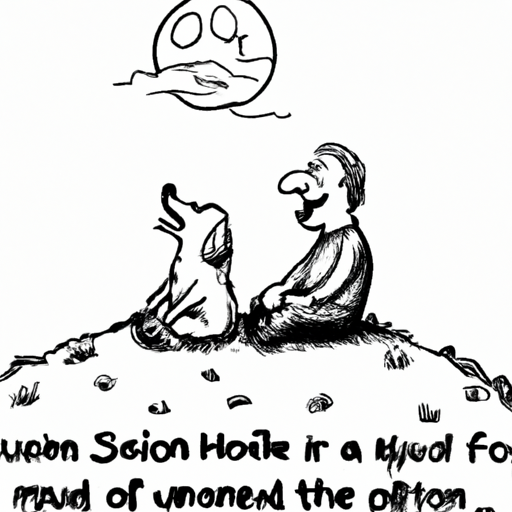Understanding the Canine Language
Dogs have a unique way of communicating their emotions and desires, and howling is one of them. When your furry friend howls along with you, it’s not merely an adorable or amusing behavior; it’s an expression of their inherent nature and a way of bonding with their human companion. You, as a caregiver, need to understand what your dog is trying to convey through their howls.
- Expression of Ancestral Instincts: Howling is deeply embedded in a dog’s DNA, a throwback to their wolf ancestors who used howling as a form of long-distance communication.
- Social Bonding: When your dog howls with you, it’s a form of social bonding. They’re joining in your ‘howl’ as they would in a wolf pack.
- Attention Seeking: Dogs also howl to capture your attention or express their needs.
The Science Behind Dogs’ Howling
Interestingly, the science of why dogs howl with you is closely related to their sense of hearing and their social nature. Dogs have a keen sense of hearing that allows them to pick up high-frequency sounds, often responding to them by howling.
Moreover, dogs are highly social creatures, and howling is a way of participating in the ‘pack’ activities. So, when you howl or make a similar sound, your dog perceives it as a pack song and joins in, trying to strengthen their bond with you.
Decoding the Howl: When is it a Matter of Concern?
While it’s heartwarming to have your dog join in your howls, sometimes it may be a sign of distress or health issues.
- Separation Anxiety: Dogs howling excessively when left alone may be suffering from separation anxiety.
- Pain or Discomfort: If your dog suddenly starts howling more than usual, it might be due to some physical discomfort.
- Hearing Loss: Older dogs may howl more if they’re losing their hearing, as they can become more sensitive to certain frequencies.
If you notice any unusual howling patterns, it’s advisable to consult a vet.
How to Respond to Your Dog’s Howling
| Do’s | Don’ts |
|---|---|
| Engage with them | Punish them |
| Provide mental stimulation | Ignore them |
| Consult a vet if howling is excessive | Encourage unwanted howling |
Remember, understanding and responding appropriately to your dog’s howling is crucial for their well-being and your bond with them.
Common Misconceptions About Dogs Howling
Some people believe that dogs howl because they’re imitating human singing or they’re unhappy. However, these are merely myths. Dogs howl for a variety of reasons, from expressing their ancestry to seeking attention or responding to certain sounds.
FAQ’s
Q: Why does my dog howl when I play the piano?
A: Dogs have a keen sense of hearing and are sensitive to high-frequency sounds like music. Your dog might be howling in response to the sounds it hears from the piano.
Q: Is howling a sign of pain in dogs?
A: While howling can be a sign of pain or distress, it’s not always the case. If your dog’s howling is accompanied by other signs of discomfort, it’s best to consult a vet.
Q: Should I be concerned if my dog howls a lot?
A: If your dog’s howling is excessive or has increased suddenly, it’s advisable to consult a vet as it could be a sign of distress or health issues.
Q: Do all breeds of dogs howl?
A: While all dogs have the capacity to howl, some breeds are more inclined to it due to their close genetic connection to wolves.
Remember, as a caregiver, understanding and empathizing with your canine companion’s behaviors can make a world of difference in your relationship with them.



